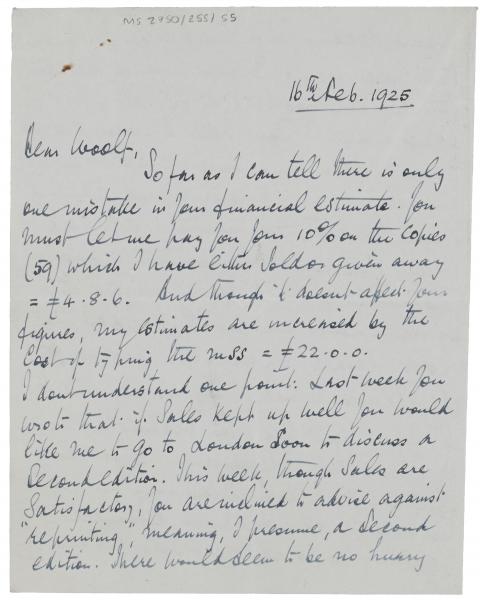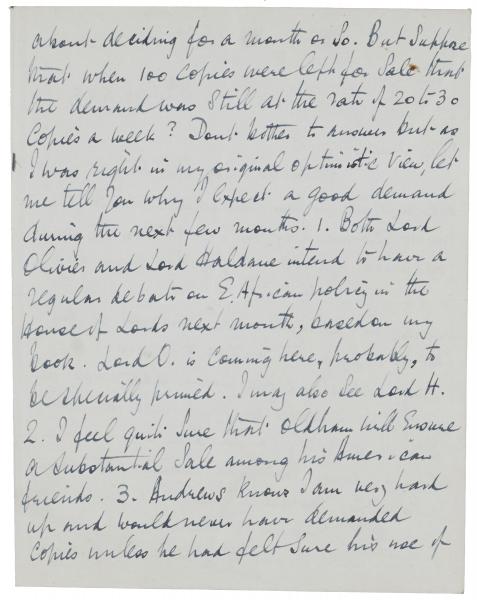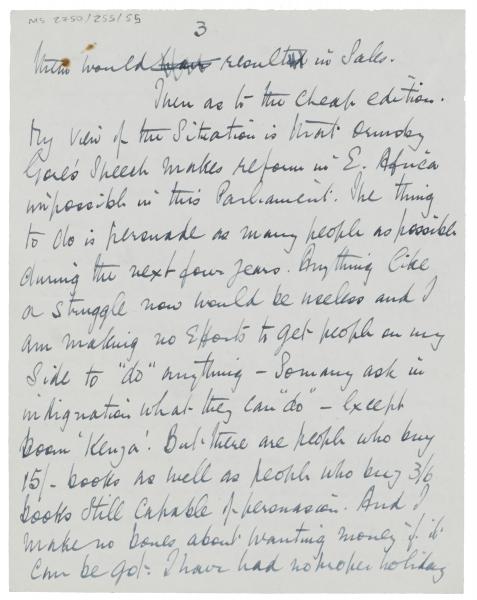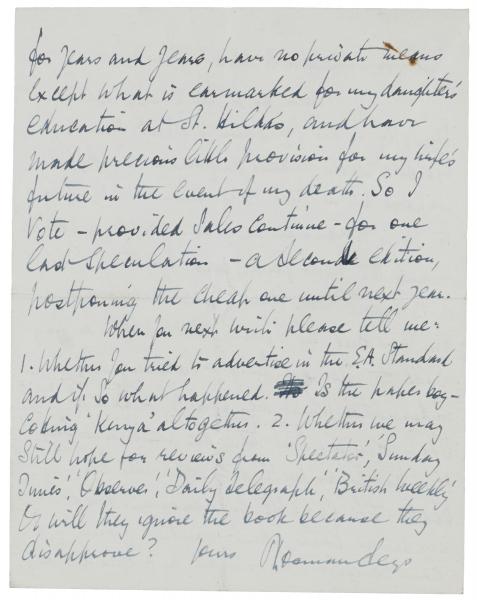[[1]]
[[MS 2750/255/55]]
16th Feb. 1925
Dear Woolf,
So far as I can tell there is only one mistake in your financial estimate. You must let me pay you your 10% on the copies (59) which I have either sold or given away = £4.8.6. And though it doesnt [sic] affect your figures, my estimates are increased by the cost of typing the MSS = £22.0.0.
I dont [sic] understand one point: Last week you wrote that if sales keep up well you would like me to go to London soon to discuss a second edition. This week, though sales are satisfactory, you are inclined to advise against "reprinting", meaning, I presume, a second edition. There would seem to be no hurry
[[2]]
about deciding for a month or so. But suppose that when 100 copies were left for sale that the demand was still at the rate of 20 to 30 copies a week? Dont [sic] bother to answer but as I was right in my original optimistic view, let me tell you why I expect a good demand during the next few months. 1. Both Lord Olivier and Lord Haldane intend to have a regular debate on E<ast>. African policy in the House of Lords next month, based on my book. Lord O<livier>. is coming here, probably, to be specially primed. I may also see Lord H<aldane>. 2. I feel quite sure that Oldham will ensure a substantial sale among his American friends. 3. Andrews knows I am very hard up and would never have demanded copies unless he had felt sure his use of
[[3]]
3
them[?] would have resulted in sales.
Then as to cheap editions. My view of the situation is that Ormsby Gore's speech makes reform in E<ast>. Africa impossible in this Parliament. The thing to do is persuade as many people as possible during the next four years. Anything like a struggle now would be useless and I am making no efforts to get people on my side to "do" anything - so many ask in indignation what they can "do" - except boom 'Kenya'. But there are people who buy 15/- books as well as people who buy 3/6 books still capable of persuasion. And I make no bones about wanting money if it can be got. I have had no proper holiday
[[4]]
for years and years, have no private means except what is earmarked for my daughter's education at St Hilda's, and have made previous little provision for my wife's future in the event of my death. So I vote - provided sales continue - for one last speculation - a second edition, postponing the cheap one until next year.
When you next write please tell me: 1. Whether you tried to advertise in the E<ast>. A<frican>. Standard and if so what happened. Its Is the paper boycotting 'Kenya altogether. 2. Whether we may still hope for reviews from 'Spectator', 'Sunday Times', 'Observer', 'Daily Telegraph', 'British Weekly' or will they ignore the book because they disapprove?
Yours | Norman Leys [signature]




